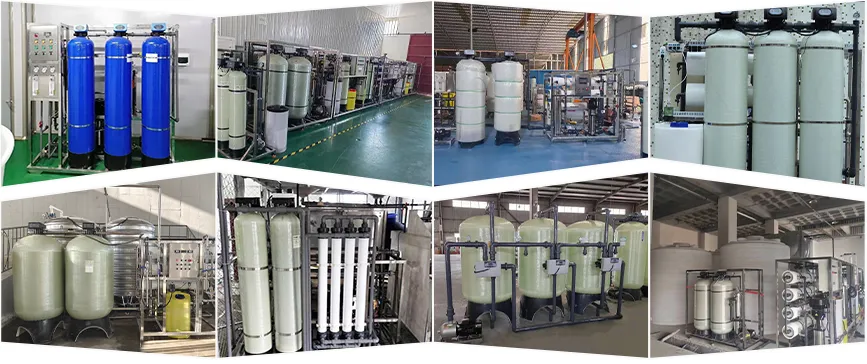loading...
- No. 9, Xingyuan South Street, Dongwaihuan Road, Zaoqiang County, Hengshui, Hebei, China
- admin@zjcomposites.com
- +86 15097380338
- Welcome to visit our website!
FRP Pressure Tank Design for Enhanced Performance and Safety Applications
The Significance of FRP Pressure Vessels in Modern Applications
FRP (Fiber Reinforced Plastic) pressure vessels are a crucial innovation in various industries, fundamentally changing how we store and manage fluids under pressure. These vessels are composed of a plastic matrix reinforced with fibers, typically glass or carbon, which enhances their strength, durability, and resistance to corrosion. As industries evolve and demand more efficient and cost-effective solutions, FRP pressure vessels are becoming increasingly significant.
Advantages of FRP Pressure Vessels
One of the primary advantages of FRP pressure vessels is their impressive strength-to-weight ratio. Compared to traditional materials like steel or concrete, FRP vessels are much lighter, which simplifies transportation, installation, and handling. This lightweight nature also leads to lower structural support requirements, ultimately reducing overall project costs.
Corrosion resistance is another significant benefit of FRP pressure vessels. In many industrial processes, fluids can be highly corrosive, leading to the degradation of traditional materials and the need for frequent replacements. FRP vessels are inherently resistant to a wide range of chemicals, making them ideal for industries such as chemical processing, water treatment, and oil & gas. This resistance not only extends the lifespan of the vessels but also reduces maintenance costs and downtime.
Moreover, FRP vessels offer excellent thermal insulation properties. In applications where temperature stability is crucial, such as in the storage of hot or cold liquids, FRP provides an efficient solution, minimizing heat transfer and ensuring that the stored substance maintains its desired temperature for longer periods.
Applications of FRP Pressure Vessels
frp pressure vessel tank

The applications of FRP pressure vessels are vast and varied. In the chemical industry, these vessels are used for the storage and transportation of a wide range of chemicals, including acids, bases, and solvents, due to their corrosion-resistant properties. Similarly, in the water treatment sector, FRP vessels are used for pressure filtration and softening processes, where their durability and low maintenance requirements shine.
The oil and gas industry also benefits significantly from FRP technology. These pressure vessels are employed in offshore drilling operations and onshore facilities for storing various petroleum products. Their lightweight and corrosion-resistant characteristics are particularly valuable in harsh environments, where traditional materials may succumb to the elements.
In the HVAC (Heating, Ventilation, and Air Conditioning) industry, FRP vessels are used for thermal energy storage and in chillers. Their efficiency in managing thermal loads contributes to energy savings and optimal performance, which is increasingly crucial as energy costs rise and environmental concerns grow.
Future Trends
As we look to the future, the demand for FRP pressure vessels is expected to increase. With ongoing advancements in composite manufacturing technologies, new formulations, and production techniques are emerging that promise even better performance characteristics. The integration of smart technology could lead to the development of intelligent pressure vessels equipped with sensors and monitoring systems, enhancing safety and operational efficiency.
In conclusion, FRP pressure vessels represent a significant advancement in material science, offering numerous advantages over traditional materials. Their applications across various industries underscore their versatility and effectiveness in handling challenging environments. As technology continues to evolve, we can anticipate even broader adoption and innovative uses for FRP pressure vessels, paving the way for more sustainable and efficient industrial solutions.
-
The Rise of FRP Profiles: Strong, Lightweight, and Built to LastNewsJul.14,2025
-
SMC Panel Tanks: A Modern Water Storage Solution for All EnvironmentsNewsJul.14,2025
-
GRP Grating: A Modern Solution for Safe and Durable Access SystemsNewsJul.14,2025
-
Galvanized Steel Water Tanks: Durable, Reliable, and Ready for UseNewsJul.14,2025
-
FRP Mini Mesh Grating: The Safer, Smarter Flooring SolutionNewsJul.14,2025
-
Exploring FRP Vessels: Durable Solutions for Modern Fluid HandlingNewsJul.14,2025
-
GRP Structures: The Future of Lightweight, High-Performance EngineeringNewsJun.20,2025
